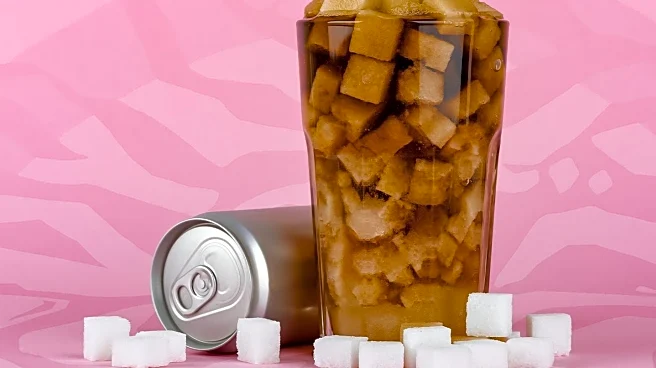What's Happening?
Recent discussions have highlighted the health implications of consuming sugary drinks like Coca-Cola. Chris van Tulleken, an expert on ultra-processed foods, has criticized the current labeling system
that allows Coke to receive favorable ratings despite its high sugar content. A single can of Coke contains 35 grams of sugar, exceeding the NHS's daily recommended limit of 30 grams for adults. This excessive sugar intake is linked to increased risks of tooth decay, as sugar feeds bacteria that produce acid, weakening tooth enamel. Additionally, the caffeine content in Coke, although lower than coffee, contributes to its addictive nature. Experts warn that children and pregnant women should avoid such drinks due to caffeine's potential health risks. The presence of phosphoric acid in Coke, used to mask sugar content, may also negatively impact dental and bone health over time.
Why It's Important?
The critique of Coca-Cola's sugar content underscores broader concerns about the health impacts of ultra-processed foods and sugary beverages. These drinks are linked to various health issues, including obesity, diabetes, and dental problems. The discussion raises questions about the effectiveness of current food labeling systems in informing consumers about health risks. If labeling systems fail to accurately reflect the health implications of products, consumers may unknowingly consume harmful levels of sugar and other additives. This situation highlights the need for stricter regulations and better consumer education to promote healthier dietary choices and reduce the burden of diet-related diseases.










